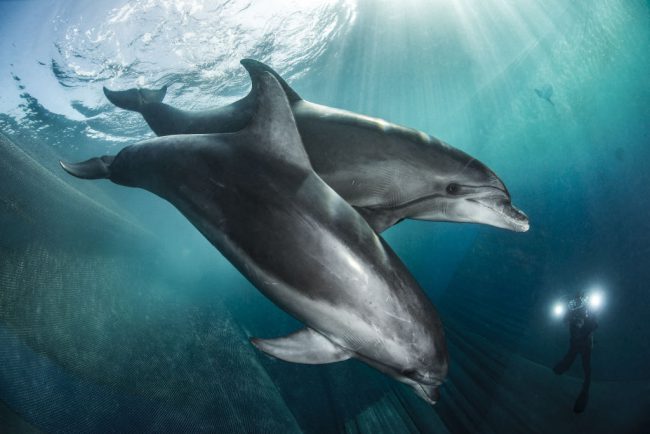Dolphins have long been recognized as being highly intelligent and sentient creatures, but a new study suggests they could have gone so far as to become the dominant species on our planet — if only they evolved opposable thumbs.

Like humans, dolphins have highly complex relationships with each other, maintain social hierarchies, communicate in regional dialects, help raise children that aren’t their own and even care for their elderly, according to the study, published in the journal Nature Ecology and Evolution.
But, for better or for worse, dolphins didn’t go on to develop dexterous hands like humans did, limiting their ability to create complex physical tools and technologies.
READ MORE: Baby dolphin dies after ‘selfish’ tourists rush to take pictures with it
“Unfortunately, they won’t ever mimic our great metropolises and technologies because they didn’t evolve opposable thumbs,” said lead researcher Susanne Shultz, an evolutionary biologist at the University of Manchester.
For the study, researchers set out to explore the relationship between social behaviours and brain size in cetaceans, a group that includes dolphins, whales and porpoises.
They found that dolphins’ brains grew larger over thousands of years in order to accommodate the increasingly complex demands of their societies. This process, known as encephalization, is known to have occurred in humans.
READ MORE: U.S. proposing ban on swimming with dolphins in Hawaii
“That means the apparent co-evolution of brains, social structure, and behavioural richness of marine mammals provides a unique and striking parallel to the large brains and hyper-sociality of humans and other primates on land,” reads the study.
WATCH: Vancouver bans new whales, dolphins from aquarium

These findings show that dolphins and other cetaceans, despite having different brain structures from humans, may have similar cognitive and social skills, said Kieran Fox, a neuroscientist at Stanford University.
He said the next step for researchers would be to explore how different brain structures could “give rise to highly similar cognitive and social behaviours.”




Comments